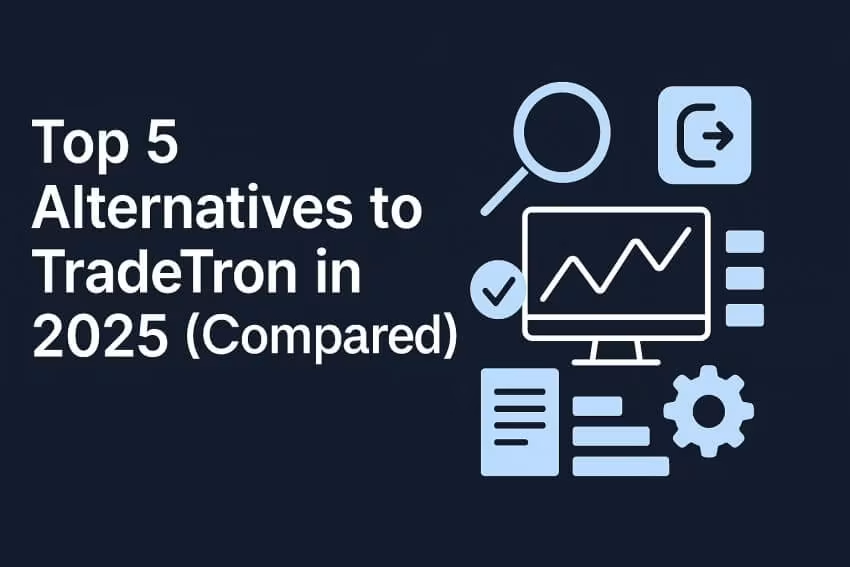Algorithmic trading, or algo trading, has gained significant popularity in recent years, particularly in India. The automation of trading strategies allows for greater efficiency, speed, and precision in executing trades. On the other hand, although the technology has many benefits, it also has downsides, particularly for those who have just begun. If you are about to start your journey as an algo trader in India, it is necessary to get familiar with the common mistakes that new traders usually make. The bettering of your trading strategy can be increased if you avoid these mistakes and learn to navigate the intricacies of algorithmic trading more simply.
1. Overcomplicating Your Trading Strategy
Many beginner algo traders in India tend to make the mistake of creating overly complex algorithms, believing that a more intricate strategy will perform better. Although the idea of creating a complicated system with numerous variables is appealing, the truth is that complexity is not always the key to success. To be precise, they may more often than not be the cause of unpredictable outcomes, and they can also be very difficult to maintain or even adjust when the market conditions are subject to change.
A good start is a simple and clearly defined strategy. Concentrate only on one or two main indicators, which should be the ones that have been backtested with success. As your experience with the software application of your algo trader increases, you can then start to add complexity gradually.
2. Neglecting Backtesting and Optimisation
Backtesting is a key step in algorithm trading. The majority of budding algorithm traders either neglect this stage or do it improperly. Backtesting gives you the chance to check how your strategy would have done in the past in the market, thus, helping you to spot the weaknesses or areas that need improvement.
However, it should be noted that optimisation and overfitting are not the same things. Overfitting is a situation where your algorithm is maximally adapted to the historical data and therefore it is very hard to use such an algorithm in real time market conditions. Do not create a scenario where an algorithm only works in a specific case by testing it on different data sets. In India, algo trading platforms like the uTrade Algos platform enable you to easily run backtests and ensure your strategies are robust enough for live trading.
3. Ignoring Risk Management
One of the biggest mistakes new algo traders make is not incorporating a solid risk management plan. No trading strategy is foolproof, and without proper risk controls, a few bad trades can deplete your capital quickly. Risk management features like stop-loss orders, position sizing, and exposure limits should be integrated into your algorithm from the start.
An online algo trading platform will often include risk management tools to help you define your exposure. However, it's essential to understand these features and use them appropriately. Algo trading platforms in India typically offer stop-loss functions, but it’s up to the trader to configure them correctly.
4. Not Monitoring Your Algorithm in Real Time
One of the common myths regarding algorithmic trading is that it is a "set it and forget it" system. Lots of new algo traders in India believe that they can leave their algorithms running without proper supervision. To algo trading, yes the primacy of automation is the goal, however, it is still vital to you to monitor your algorithm in real time, especially during your initial time.
Market conditions can be very volatile, and the best algorithms may also fail under unexpected situations. Monitoring gives you the option of whether to make adjustments in real time or stop the algorithm if something goes wrong. A good way to remain linked to your algorithm's performance is by using an algo trader app that offers real time tracking.
5. Underestimating Market Data Quality
The quality of the market data used by your algorithm is critical to optimising your strategy. Many new algo traders in India rely on free or low-quality data sources that may contain gaps, inaccuracies, or delays. This can result in poor decision-making by your algorithm, leading to missed opportunities or failed trades.
Investing in high-quality, real time data feeds is essential for effective algorithmic trading. Reliable data ensures your algo trader software is making decisions based on the most up-to-date and accurate information available. Algo trading platforms in India typically offer data services, but it’s crucial to assess their quality and choose a platform that fits your needs.
6. Overleveraging
Leverage can amplify both potential outcomes, making it appealing to many traders looking to maximise their capital. However, new algo traders often misuse leverage, resulting in significant losses when trades don’t go as planned. Algo trading in India, like in other markets, offers access to leverage, but it’s crucial to understand the risks involved.
Before using leverage, make sure your algorithm is thoroughly backtested and proven to work across different market conditions. Even then, use leverage conservatively. Overleveraging can wipe out your trading account quickly if not managed carefully.
7. Lack of Diversification
Many new algo traders in India focus too heavily on one market, asset class, or strategy. While specialisation can be useful, putting all your eggs in one basket increases risk. If your chosen market experiences a downturn or your strategy underperforms, your entire portfolio could suffer.
When it comes to the algo trader's long-term survival, what matters is diversification. Envision-making algorithms that will trade in different asset classes like stocks, currencies, and oil, and also Forex. You can also evolve with market changes by diversifying your strategies so that you can trade with less risk overall.
Using algo trading platforms in India, traders can develop and manage multiple strategies across various markets. An online algo trading platform, like uTrade Algos, enables users to build and diversify their strategies with ease, helping mitigate risk and improve performance over time.
In conclusion, starting on the algo trading journey can be thrilling and full of avenues but also brings some difficulties. By avoiding these seven common mistakes, you’ll be better equipped to navigate the complexities of algorithmic trading and make more informed decisions. Whether you are a beginner or an expert trader, it is important to use the right algo trader software and to choose a reliable algo trader app like uTrade Algos. Remember, backtest thoroughly, manage your risk, and stay engaged with your algorithm to keep your strategies optimised and start simply.












